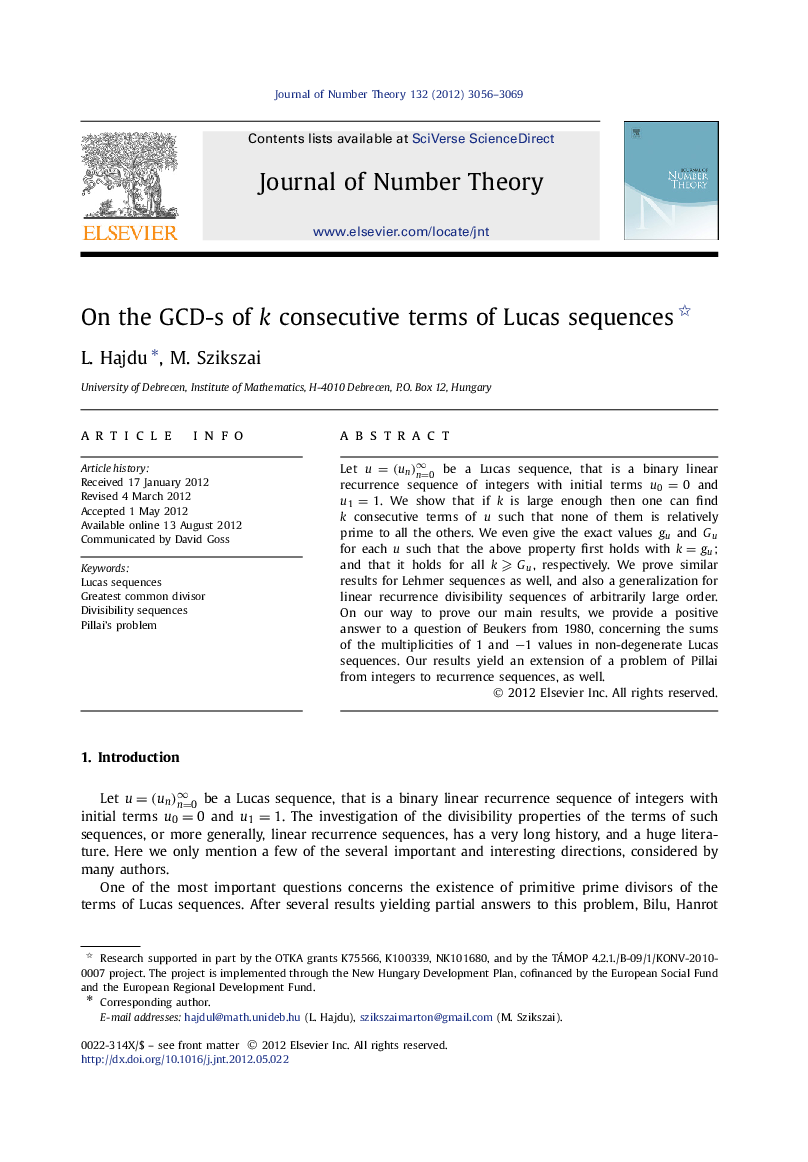| Article ID | Journal | Published Year | Pages | File Type |
|---|---|---|---|---|
| 6415670 | Journal of Number Theory | 2012 | 14 Pages |
Let u=(un)n=0â be a Lucas sequence, that is a binary linear recurrence sequence of integers with initial terms u0=0 and u1=1. We show that if k is large enough then one can find k consecutive terms of u such that none of them is relatively prime to all the others. We even give the exact values gu and Gu for each u such that the above property first holds with k=gu; and that it holds for all k⩾Gu, respectively. We prove similar results for Lehmer sequences as well, and also a generalization for linear recurrence divisibility sequences of arbitrarily large order. On our way to prove our main results, we provide a positive answer to a question of Beukers from 1980, concerning the sums of the multiplicities of 1 and â1 values in non-degenerate Lucas sequences. Our results yield an extension of a problem of Pillai from integers to recurrence sequences, as well.
